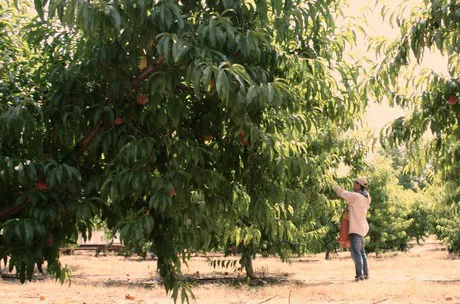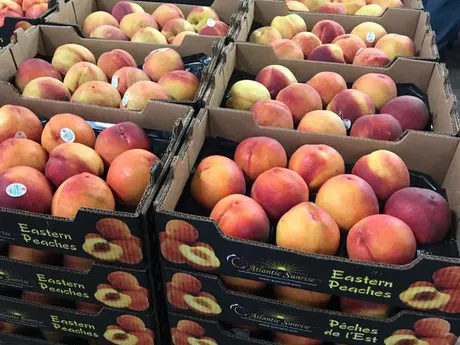Despite cold weather last week damaging some of the early season fruit, peach growers in South Carolina are expecting a much-improved season compared to the previous two years. Harvest is expected to commence on time in early May, but volume is expected to be tight through the first month because of the cold temperatures.
"The trees are in full bloom and the season is scheduled to start the first week of May, continuing through until Labor Day," shared Jimmy Forrest of Dixie Belle Peaches in Ridge Spring, about 30 miles northeast of Augusta Georgia. "We did experience a cold snap last week when the temperatures went as low as 27 degrees. This did kill some of the early season fruit. However, only the May peaches were affected and subsequent varieties should see good volume. But as a result, we expect supplies to be tight in May and into the first two weeks of June."

Better crop than last two years
Southeast peach growers have suffered two consecutive years of extreme crop losses and are hoping this year will see a turnaround. So far, the season is shaping up to be a good one and growers are excited for the year ahead. Dixie Belle Peaches has 32 varieties of peaches and they ship them around the eastern and central United States.
"In 2017 we had no crop and we also lost half the 2018 crop," Forrest recalled. "But this year we are excited because it's looking to be a much better crop than last year. We have a mixture of clingstone and freestone fruit. Earlier varieties typically consist of the clingstone peaches, while freestones don't usually start until after July 4."
"We are the fourth largest peach grower in the nation," he continued. "10 percent of our crop is exported to Canada and around two thirds are shipped in 25lb boxes to the Northeast corridor in stores including Stop & Shop and Giant Food Stores. We also send peaches to Texas, the Midwest, Chicago and Indianapolis."

New technology pinpoints quality
Dixie Belle has invested in new quality meters that analyze the internal quality of the fruit. The meters scan the fruit to detect flaws and the absence of stones, and working together with the packing machines to reject any fruit not passing the quality parameters. According to Forrest, the implementation of this technology has been highly successful, and the company is proud to be one of the first in the East to utilize it.
"In the last two years, we've invested in a lot of tech to detect scars and bruising in the fruit," he said. "It works like an MRI would on a human body, scanning and analyzing the internal quality of each individual piece of fruit. We are one of only two growers east of the Mississippi that has this installed. The key advantages are that it eliminates human error and also we are able to see inside the fruit without cutting it open. We feel very positive about it now and as we move into the future."
For more information:
Jimmy Forrest
Dixie Belle, Inc.
Ph: +1 (803) 685-7735
info@dixiebellepeaches.com
www.dixiebellepeaches.com
